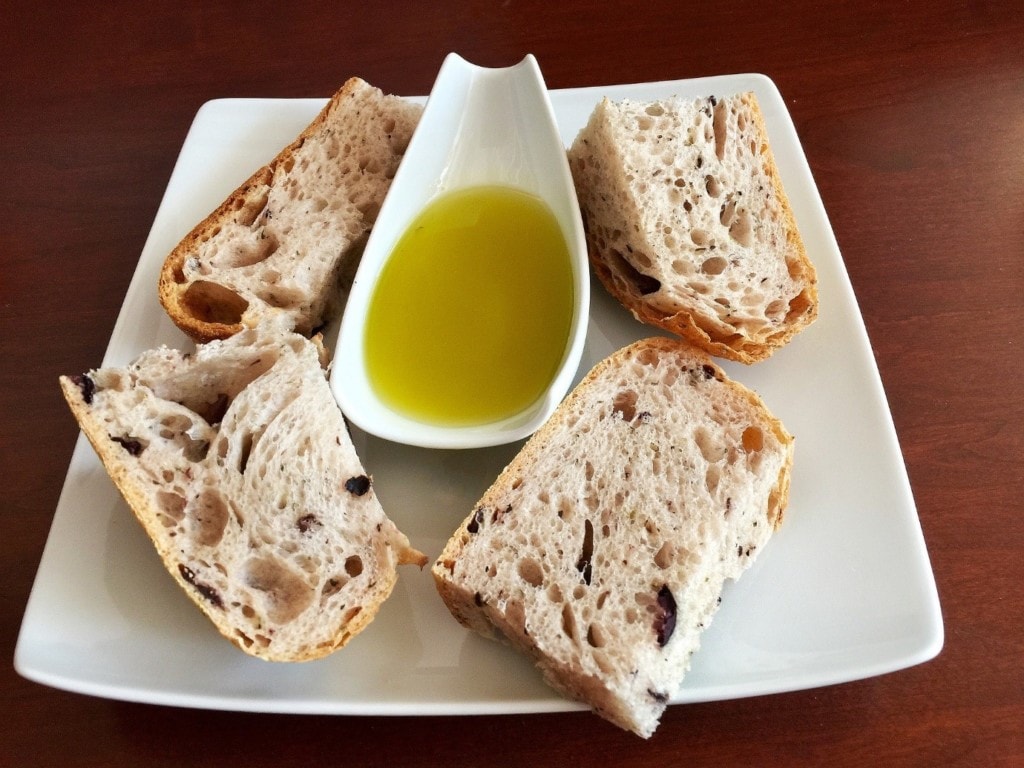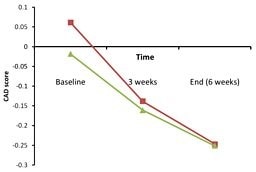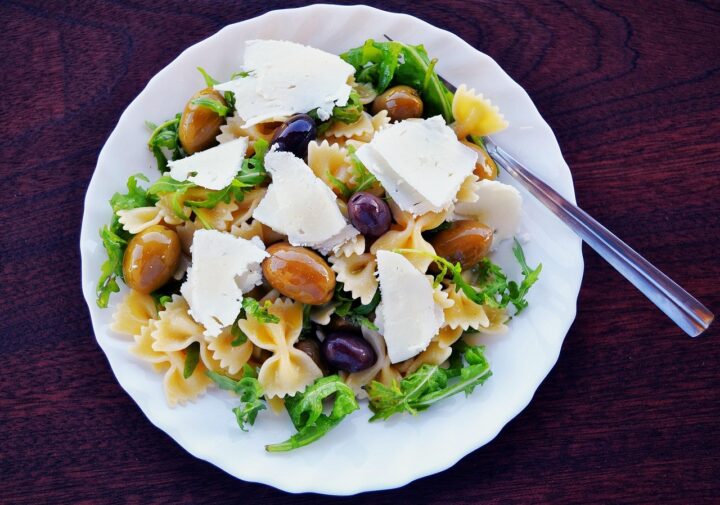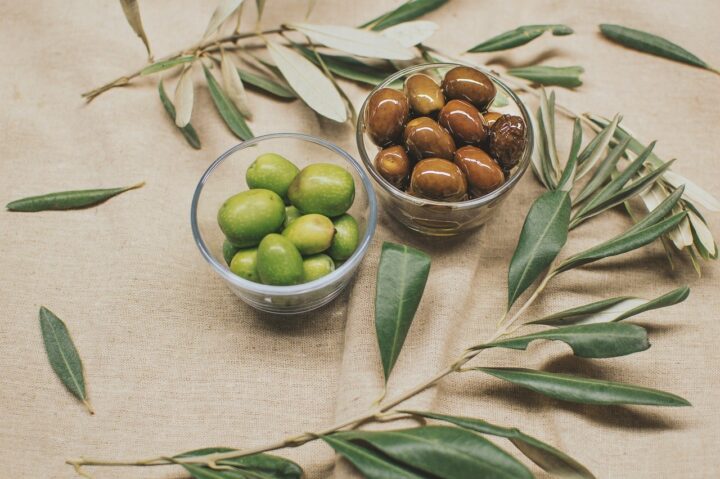Heart Foundation Backs Olive Oil As Heart-Healthy Food
Updated September 7th 2022

Healthy oils such as olive oil, canola oil, sunflower oil, peanut and soybean oil have been listed by the Heart Foundation in its latest rundown of heart healthy foods that can help lower your cholesterol.
The report, entitled Healthy Eating To Protect Your Heart, breaks down five key principles of what a heart healthy pattern looks like and, you guessed it, cooking with healthy fats such as extra virgin olive oil is a key factor.
It states:
Fats and oils can play an important role in your risk of developing heart disease. Different types of fats can impact your health differently—healthy fats can help protect your heart, and unhealthy fats can increase your risk of developing heart disease.
Also high on the list of preferred foods for heart health are plenty of vegetables, fruit and wholegrains – a key principle of the Mediterranean Diet which lends itself well to lovers of the best olive oil.
Extra Virgin Olive Oil And Risk of Heart Disease

Morocco Gold Extra Virgin Olive Oil
The cardiovascular benefits of olive oil have been well documented for many years. In fact, the first recorded use of olive oil as a preventive and therapeutic agent for heart disease dates back to Hippocrates. Numerous studies have shown that when used in place of saturated fats, monounsaturated oils like olive oil can help improve lipid profiles by reducing total cholesterol levels and bad cholesterol (LDL) while increasing good cholesterol (HDL).
As time and science progresses, there is an ever-increasing volume of research into the health benefits of extra virgin olive oil like Morocco Gold. Who better to extol the virtues of this superfood than the British Heart Foundation. The BHF carried out a study that showed increasing your extra virgin olive oil consumption by 10g a day could cut your risk of cardiovascular death and heart disease by 10 per cent.
The Mediterranean Diet And Heart Disease
Researchers analysed the effect of a Mediterranean diet on the prevention of cardiovascular disease in more than 7,200 men and women between 55 and 80 years old over an average of five years.
Participants were split randomly into three groups – a Mediterranean Diet supplemented with extra virgin olive oil, a Mediterranean Diet supplemented with nuts, and a control group following a low fat diet.
Extra virgin olive oil is a better quality than ordinary olive oil as it contains high levels of antioxidants also found in grape skins, olives and sesame seeds which are thought to benefit the heart. A second study reanalysed the results of the research and found the antioxidants also helped reduce mortality rates.
Victoria Taylor, Senior Dietitian, said: “These findings reinforce the health benefits of adopting a Mediterranean style diet. However, this study didn’t look at why a higher intake of extra virgin olive oil was associated with a reduced risk of cardiovascular disease. Substances in the oil, other than the fats themselves, could be of benefit to our hearts.
“It’s important to remember that the type of fat you eat isn’t the only factor in relation to a heart-healthy diet. While extra virgin olive oil may have particular benefits, consuming this on top of a generally unhealthy diet is unlikely to make much difference to your health. To reap the full benefits you’ll need to make other changes too, like eating more fruit and vegetables and fish and less red meat and sugary, fatty snacks.”
Source: BHF
How To Measure Changes In Heart Health
One of the big problems in trying to pin down particular factors that influence diseases like heart disease is that they take years, or decades, to develop and so it is difficult to do an experiment in which you give one group of people a food and deprive another group and measure the effects. Studies instead tend to be either looking for associations between health outcomes and certain habitual diets (in which case it’s difficult to separate out the effects of individual components of the diet), or looking at things that change more quickly – such as cholesterol levels – which are themselves thought to be associated with disease.
However, a team at the University of Glasgow have developed a new way of measuring subtle changes in heart health that can happen over only a few weeks, by looking at changes in the patterns of proteins excreted in peoples’ urine: a technique known as proteomics. The changes they are measuring are of the disease itself, which they can pick up before there are any physical symptoms — so it is far more accurate a method than measuring something that is just supposed to be associated with the disease, such as cholesterol levels.
The Study
Drs Bill Mullen and Emilie Combet Aspray recruited 70 volunteers, who all donated a sample of urine. They were then split into two groups – one group were given a supply of extra virgin olive oil, and one group ‘normal’ olive oil. Neither they, nor the research team, knew which oil they were being given. Each person had to take 20ml of olive oil a day (about 2 dessert spoons full) raw.
After both 3 and 6 weeks of taking the oil, all the volunteers gave more urine samples. Each urine sample was analysed for its protein ‘fingerprint’, getting a ‘score’ for the degree of heart disease that it indicated. That allowed the team to get an average ‘heart disease score’ for each group (those taking the extra virgin olive oil and those taking the normal olive oil) at baseline, 3 weeks and 6 weeks.
The Results
The average measure of coronary artery disease for both groups fell significantly at both 3 weeks, and again at 6 weeks after taking the olive oil.

The fall in heart disease markers seen in volunteers taking extra virgin olive oil (red) and ‘normal’ olive oil (green) over 6 weeks. (The CAD score is a score of coronary artery disease where -1 is completely healthy and 1 is symptomatic disease)
How To Build Extra Virgin Olive Oil Into A Healthy Diet
Extra Virgin olive oil is the go-to cooking oil for health-conscious food lovers and those wanting to cook healthily and lose weight. Mostly everyone who has ever read about a diet or has looked up for healthy food recipes is familiar with olive oil and its heart-healthy properties. But the wonders of extra virgin olive oil like Morocco Gold are much more than just protecting the heart from risks of attacks. The demand for high quality extra virgin olive has increased in the last few years, thanks to growth in the health-conscious populace of the world.
But did you know that having a shot of extra virgin olive oil, the first thing in the morning, has a lot of health benefits too?
Polyphenols : The Magic Ingredient In Morocco Gold Extra Virgin Olive Oil
The level of polyphenols present in Morocco Gold varies slightly from year to year, depending on a range of factors, weather, time of harvesting and processing etc.
This year we are pleased to say the level of polyphenols is the highest we have yet seen. The breakdown is:
| 3,4 DHPEA-EDA | 85 mg/kg |
| Hydroxytyrosol | 5 mg/kg |
| Lignanes | 26 mg/kg |
| Ligstroside aglycone (p, HPEA-EA) | 20 mg/kg |
| Oleuropein aglycone (3,4 DHPEA-EA) | 71 mg/kg |
| Oleocanthal p, HPEA-EDA | 65 mg/kg |
| Tyrosol | 372 mg/kg |
| Polyphenols Total | 644 mg/kg |
So How Much Should I Take?
Morocco Gold Extra Virgin Olive Oil bottle size is 500ml (16.9 fl.Oz.USA). There are around 35 tablespoons in each bottle (1 tbs. = 14.3ml).
Our latest harvest polyphenol content is 644 mg / kg.
2-3 tablespoon will therefore deliver between 36.8 and 55.2 mg/kg per day
European Food Safety Agency Recommendation
The European Food Safety Agency regulation states that extra virgin olive oil with a polyphenol level of 250mg / kg and above can make health claims. However it is also very specific about which polyphenols this applies to. It specifically states that this must include hydroxytyrosol and its derivites, (oleuropein and tyrosol). So long as these polyphenols are present, the beneficial effects can be obtained with a daily intake of around 20ml of olive oil.
At this level of polyphenol, 1 tablespoon will have around 7.1 mg/kg (250 / 35) So to get the health benefits you would need to take around 3 tablespoons per day.
Because our concentration of polyphenol is much higher than the standard, you will get the associated health benefits with around 2 tablespoons per day.
The Health Benefits Of Extra Virgin Olive Oil
Due to the numerous health benefits of olive oil, it is typically used in cooking, but eating it raw is even healthier. A lot of health experts recommend eating olive oil in the morning, here’s why:
The idea of consuming olive oil this way comes from the Mediterranean diet, which, despite its share of naysayers, has been found to be effective. Olive oil has an acid called oleic acid, which gives the feeling of fullness and promotes the feeling of satiety.
Extra Virgin Olive Oil Aids Detoxification
The idea of a digestive cleanse has been denounced by some health experts. But as per few experts, an olive oil and lemon detox cleanse has benefits for the digestive system in the short term.
Extra Virgin Olive Oil Helps Prevent Colon Cancer
According to various studies, drinking extra virgin olive oil may prevent the formation of free radicals in the body, and reduce the incidence of colon cancer. This is because olive oil is full of antioxidants.
Extra Virgin Olive Oil Help Promote Healthy Skin
Anything full of antioxidants is always great for the skin. Just like Vitamin E, antioxidants also slow the ageing of skin. Olive oil has an abundance of both of these.
Source: ndtv.com





